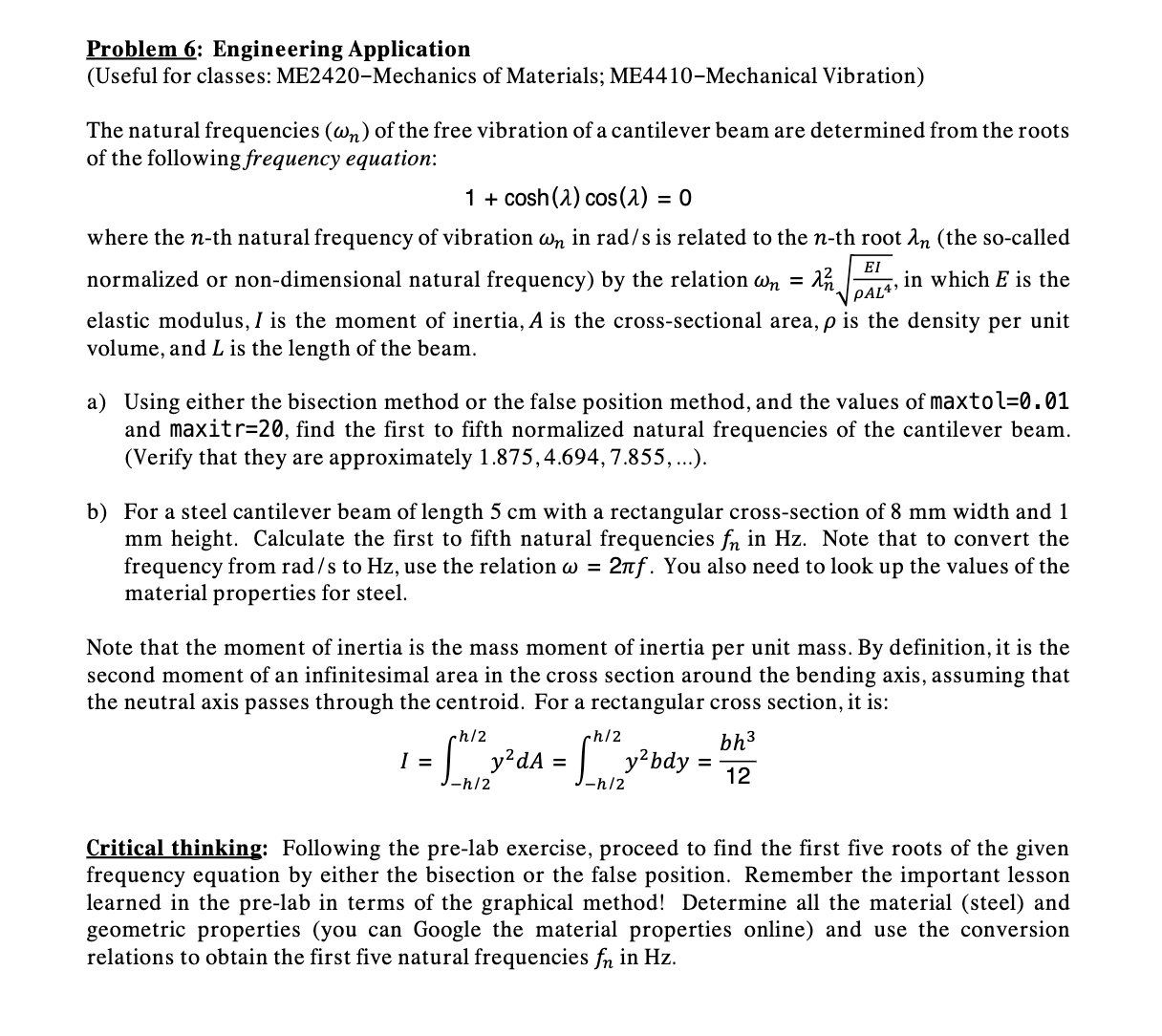Answered step by step
Verified Expert Solution
Question
1 Approved Answer
Problem 6: Engineering Application (Useful for classes: ME2420-Mechanics of Materials; ME4410-Mechanical Vibration) The natural frequencies (wn) of the free vibration of a cantilever beam

Problem 6: Engineering Application (Useful for classes: ME2420-Mechanics of Materials; ME4410-Mechanical Vibration) The natural frequencies (wn) of the free vibration of a cantilever beam are determined from the roots of the following frequency equation: 1 + cosh (1) cos(1) = 0 where the n-th natural frequency of vibration w in rad/s is related to the n-th root n (the so-called normalized or non-dimensional natural frequency) by the relation wn = 222 in which E is the PAL4' elastic modulus, I is the moment of inertia, A is the cross-sectional area, p is the density per unit volume, and L is the length of the beam. a) Using either the bisection method or the false position method, and the values of maxtol=0.01 and maxitr=20, find the first to fifth normalized natural frequencies of the cantilever beam. (Verify that they are approximately 1.875, 4.694, 7.855,...). b) For a steel cantilever beam of length 5 cm with a rectangular cross-section of 8 mm width and 1 mm height. Calculate the first to fifth natural frequencies for in Hz. Note that to convert the frequency from rad/s to Hz, use the relation w = 2f. You also need to look up the values of the material properties for steel. Note that the moment of inertia is the mass moment of inertia per unit mass. By definition, it is the second moment of an infinitesimal area in the cross section around the bending axis, assuming that the neutral axis passes through the centroid. For a rectangular cross section, it is: ch/2 I = -h/2 -h/2 2dA=2bdy= bh3 12 -h/2 Critical thinking: Following the pre-lab exercise, proceed to find the first five roots of the given frequency equation by either the bisection or the false position. Remember the important lesson learned in the pre-lab in terms of the graphical method! Determine all the material (steel) and geometric properties (you can Google the material properties online) and use the conversion relations to obtain the first five natural frequencies for in Hz.
Step by Step Solution
There are 3 Steps involved in it
Step: 1

Get Instant Access to Expert-Tailored Solutions
See step-by-step solutions with expert insights and AI powered tools for academic success
Step: 2

Step: 3

Ace Your Homework with AI
Get the answers you need in no time with our AI-driven, step-by-step assistance
Get Started


